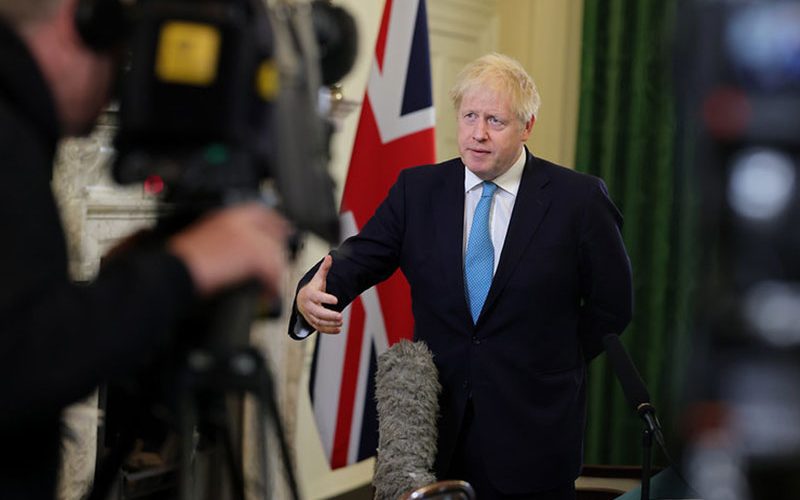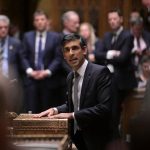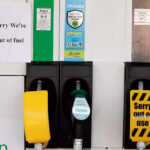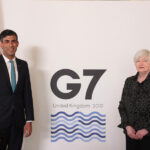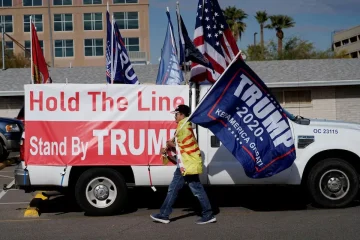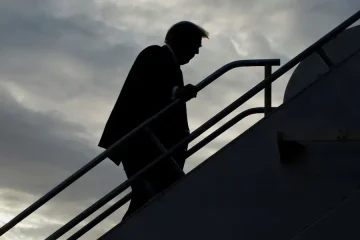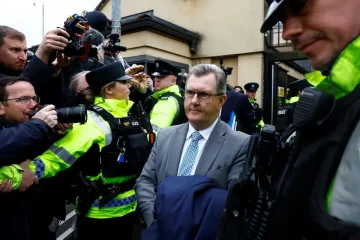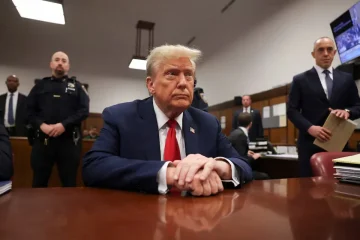JOHN CHALMERS and ELIZABETH PIPER
THE European Union’s executive has laid out contingency plans for a ‘no-deal’ Brexit at the end of the year to minimise disruption to air traffic and road and rail travel after talks between British and EU leaders failed to break an impasse.
The European Commission also proposed that Britain and the EU continue to offer reciprocal access to their fishing waters for up to a year, but London quickly rebuffed the idea.
Agreement on fishing rights has been one of the most emotive sticking points in negotiations for a trade deal that has eluded the two sides since the United Kingdom formally left the EU in January after 47 years of membership.
Investment banks on Thursday cut the chances of an agreement by the December 31 deadline, and bookmakers slashed the odds to 50%.
Prime Minister Boris Johnson and the EU’s chief executive, Ursula von der Leyen, gave themselves until Sunday to decide on their next steps after failing to overcome persistent rifts over a “lively” dinner of turbot on Wednesday.
Hanging tough, Britain told the EU on Thursday it should make significant concessions to break the deadlock by the end of the weekend for clarity about the finale to the five-year-old Brexit crisis.
“There’s still clearly some scope to keep talking but there are significant points of difference that remain,” Foreign Secretary Dominic Raab told BBC TV.
“Sunday I think is an important moment,” Raab told Sky News. “You never say never in these talks, but I think we do need to get some finality.”
Raab said the main points of contention – fisheries and commitments on a level playing field – were narrow in scope but they were matters of principle for Britain.
Responding to the EU’s proposal to temporarily freeze the current arrangement of shared access to fishing waters, a UK government spokeswoman said: “We would never accept arrangements and access to UK fishing waters and which are incompatible with our future status as an independent coastal state.”
SOFTENING THE BLOW
Britain has been in a transition period since it left the EU, remaining in the EU’s single market and customs union with rules on trade, travel and business that have stayed the same.
That ends on December 31. If by then there is no agreement to protect around $1 trillion in annual trade from tariffs and quotas, businesses on both sides will suffer.
Failure to agree new rules to govern everything from car parts to Camembert would snarl borders, shock financial markets and sow chaos through supply chains in a world already grappling with the economic cost of COVID-19.
Tesco Chairman John Allan has warned that food prices will go up if Britain leaves the EU’s orbit with no deal. Raab, asked about the remark, said there may be some changes in food prices.
The European Commission said it was still seeking a trade agreement but could soften some of the disruption predicted as Britain leaves the EU’s orbit.
“While a ‘no-deal’ scenario will cause disruptions in many areas, some sectors would be disproportionately affected due to a lack of appropriate fall-back solutions,” it said.
It proposed keeping “certain air services” between Britain and the EU for up to six months, provided London ensures the same. Air safety measures would continue to be recognised, to avoid grounding aircraft.
Basic connections by road freight and for road passengers would also continue for six months as long as it was reciprocal.
Britain will examine the proposals, the spokeswoman said.
Johnson portrays Brexit as a chance to give Britain a fully independent, more agile economy. EU powers fear London wants the best of both worlds – preferential access to EU markets but with the advantage to set its own rules.
That, they say, would undermine the post-World War Two project that sought to bind the ruined nations of Europe – and particularly Germany and France – into a global trading power.
The EU wants Britain to remain tied to the bloc’s labour, social and environmental standards in the future, as well as to state aid rules for corporate state subsidies. – Thomson Reuters Foundation.

